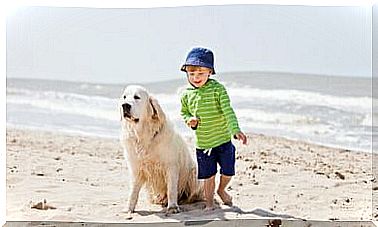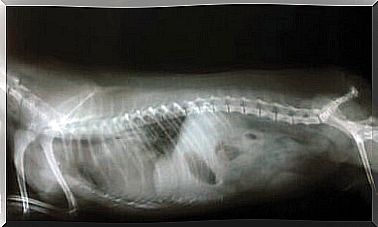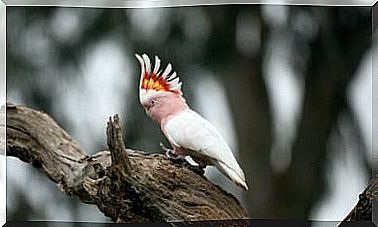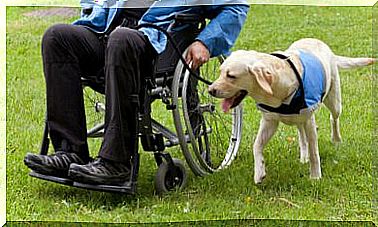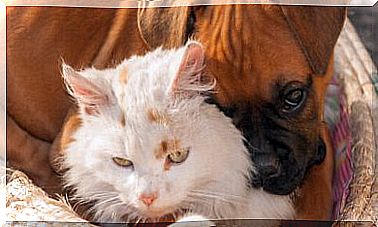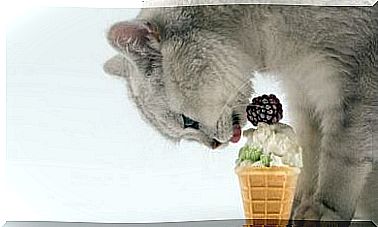Pet Therapy With Rabbits: The Most Tender Therapy There Is
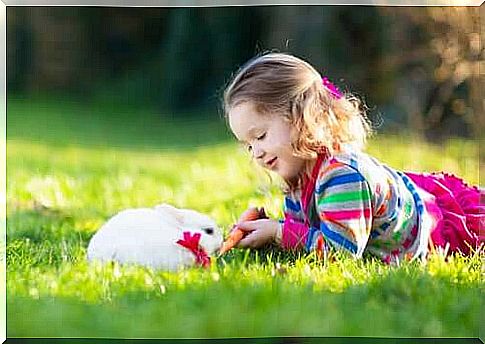
For centuries, animals have been trained and used to improve the mood of human beings. This use ranges from the simple company of animals to the direct physical support that some species offer during rehabilitation programs. In particular, today we will focus on pet therapy with rabbits.
The species involved in the world of assisted therapy are diverse : dogs, cats, chickens, turtles, pigs, fish and horses. Depending on the temperament, abilities, way of being and living, each of these species brings a different assistance.
For example, dogs are extremely sociable and docile animals, so they stimulate communication and interaction. On the other hand, horses promote physical rehabilitation and the recovery of muscle tone.
We have probably been using animals for this purpose for a very long time, but the first documented case of animal assisted intervention dates back to 1792 at York Retreat, England.
In this place, farm animals, such as rabbits, were used to treat people with mental health needs to improve the mood of patients.
Nowadays, dogs are the ultimate assistance animals, but there are many others and each of them offers a different help. We invite you to continue reading and find out everything there is to know about pet therapy with rabbits.
Why rabbits?
Animal assisted therapy is a complementary method during the rehabilitation of numerous human pathologies, both physical and mental.
As mentioned, the dog is the most common therapy animal, but the rabbit also offers numerous benefits. Let’s see which ones.

Different characteristics and qualities of the rabbit make it an excellent therapy animal. Among these we find:
- Small size.
- Intelligent and sociable with humans.
- Playful.
- Prone to socialization and easy to manage.
- Good body communication with which he conveys what he likes and what he doesn’t.
Added to this is the fact that a strong bond can be created between rabbits and children, as these animals are very popular in childhood.
Children’s literature is full of rabbits, so it’s no surprise that kids between the ages of 7 and 10 feel drawn to these adorable animals. As a result of this, pet therapy with rabbits can arouse very positive feelings in children, and it also stimulates their imagination.
Benefits of pet therapy with rabbits
Like other forms of animal-assisted therapy, pet therapy with rabbits offers numerous benefits to the overall health of children.
Promotes communication and expression
It is a positive, relaxing and fun experience that stimulates the child’s cognitive abilities. He will then be eager to share it with people he trusts, such as his family or guardians.
In addition to this, these young people generally find themselves in very difficult stages or moments in their life and spending time in the company of a rabbit distracts them from their sad reality.
Pet therapy with rabbits helps children accept physical contact
Most children in animal-assisted therapy are usually unwilling to make physical contact with other people, and the causes can be varied.
Since the rabbit accepts the caresses and hugs from the child, it stimulates the development of his communication skills of contact.
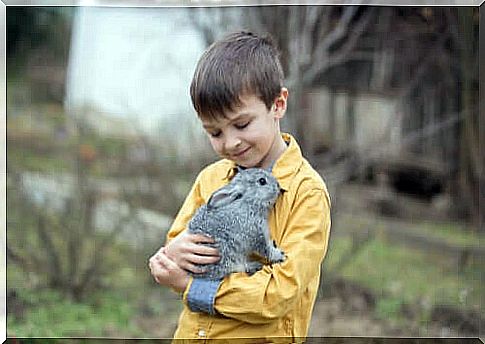
Allows children to relax
As with all other therapy animals, being able to pet an animal quietly, and accepting it, relaxes the child. Lower stress levels offer great benefits to the body and help heal it.
Rabbit care during pet therapy
When working with therapy animals, always keep in mind that they are living beings with complex emotions and that they deserve great respect.
During the pet therapy sessions, therefore, an assistant must always be present who will follow a rigorous protocol resulting from the joint work between psychologists and veterinarians. This ensures the animal’s well-being and its physical and mental integrity.
The great work of assistance animals
Scientific research and direct experiences in hospitals, retirement homes and other institutions testify to the numerous benefits offered by animals.
However, it is a developing area. We still have a lot to learn from animals and they from us.
